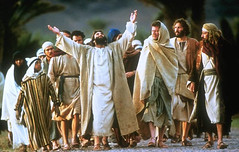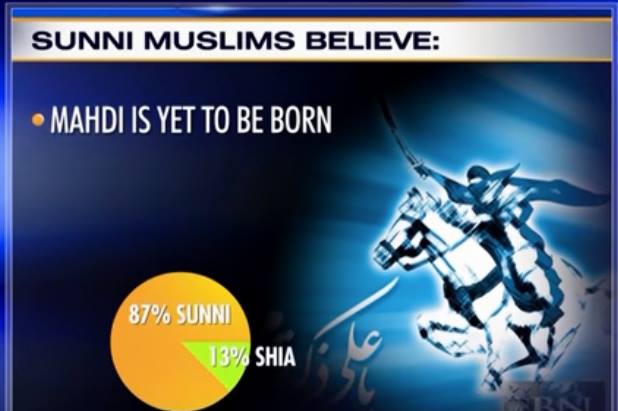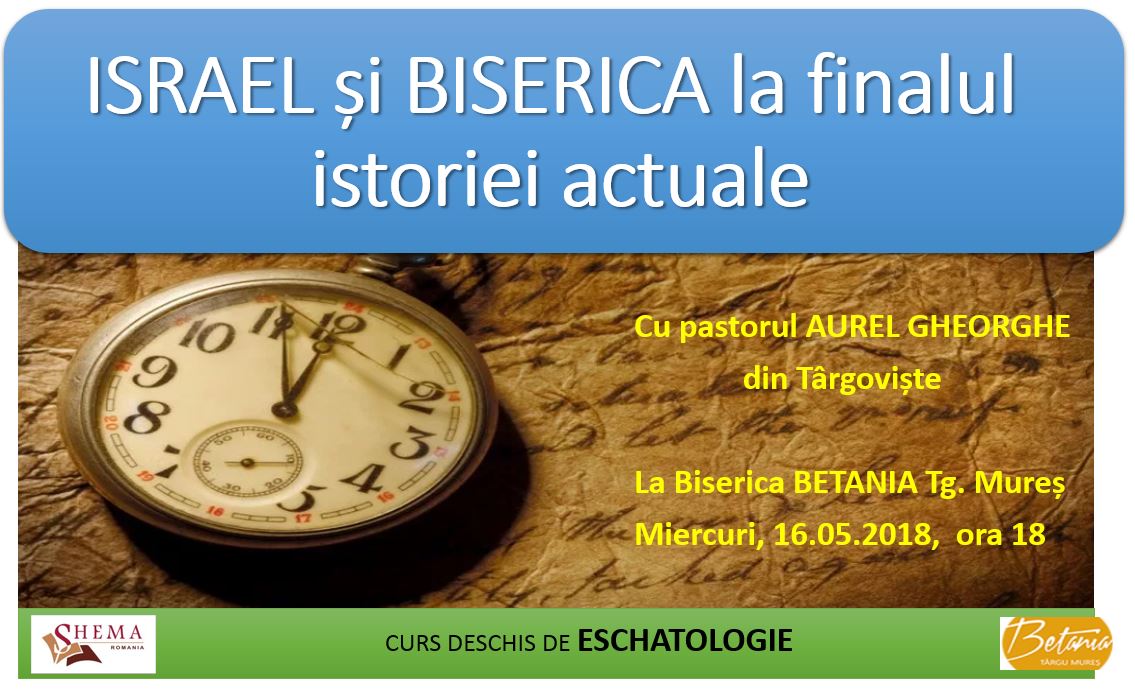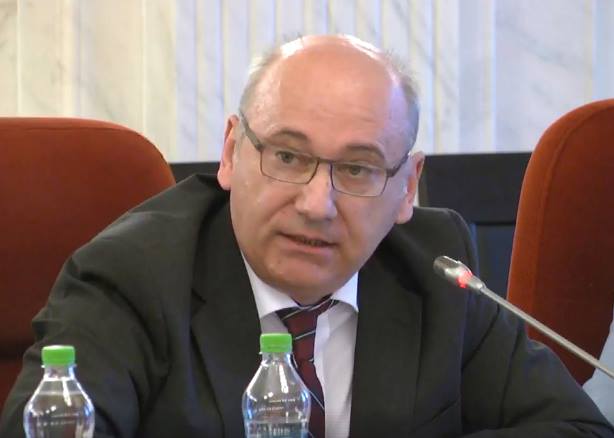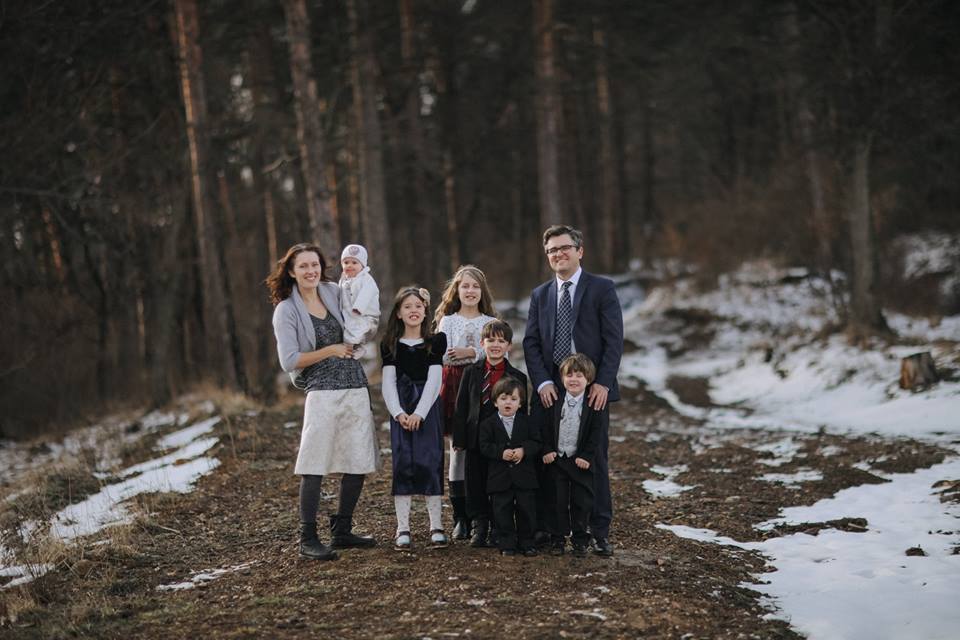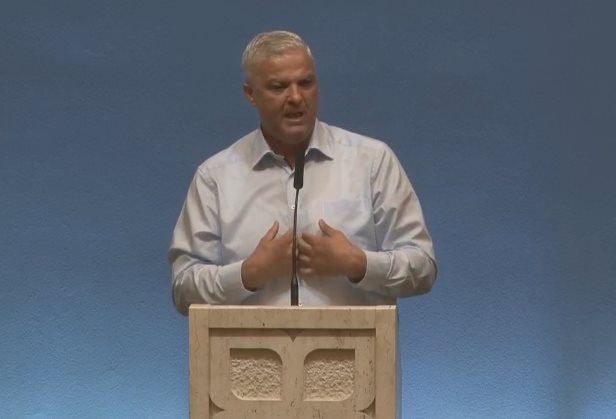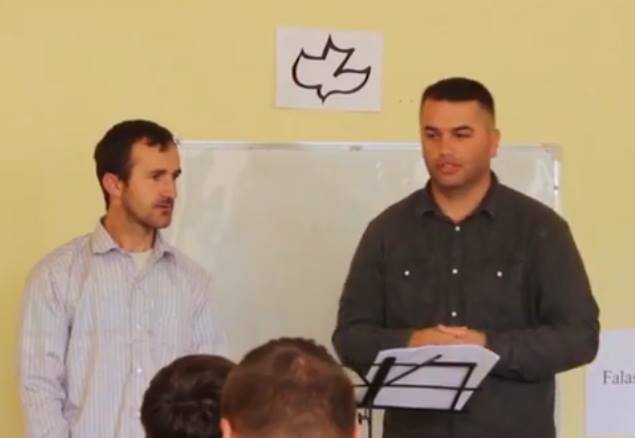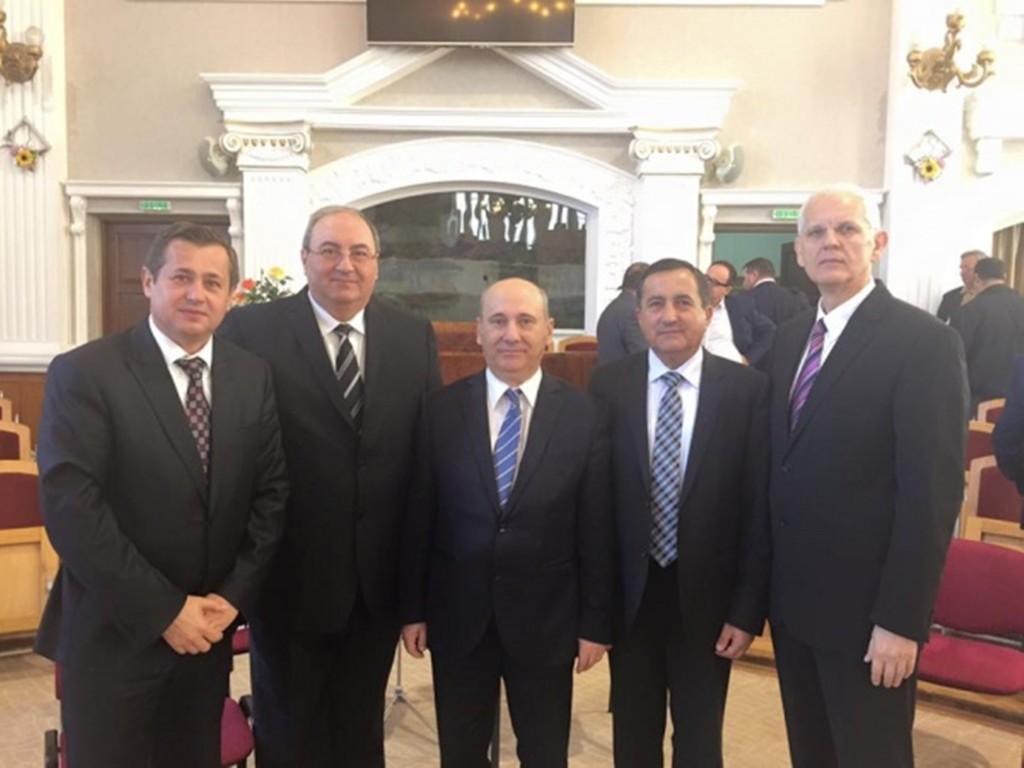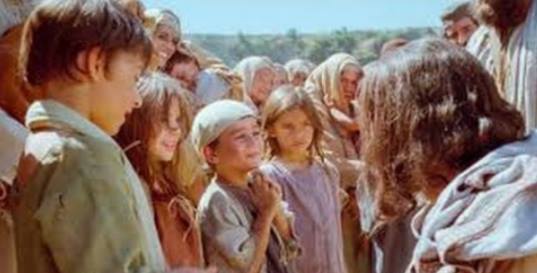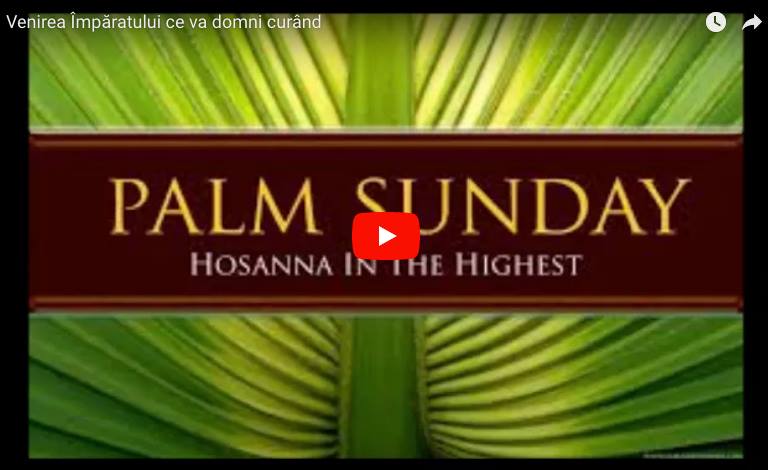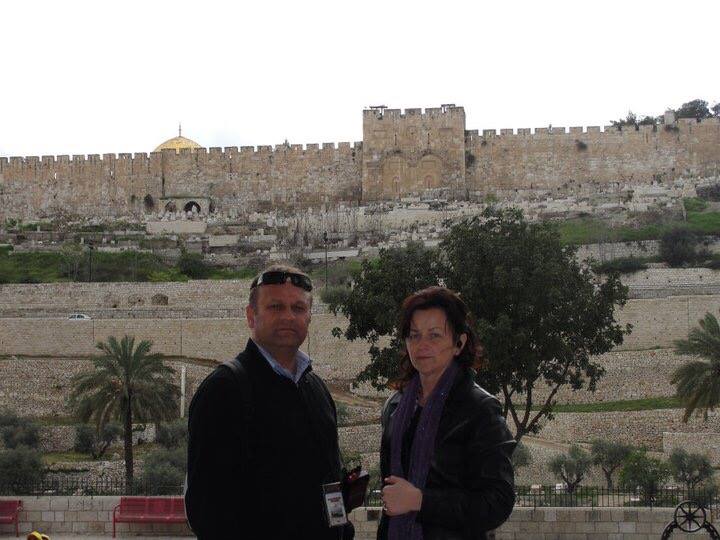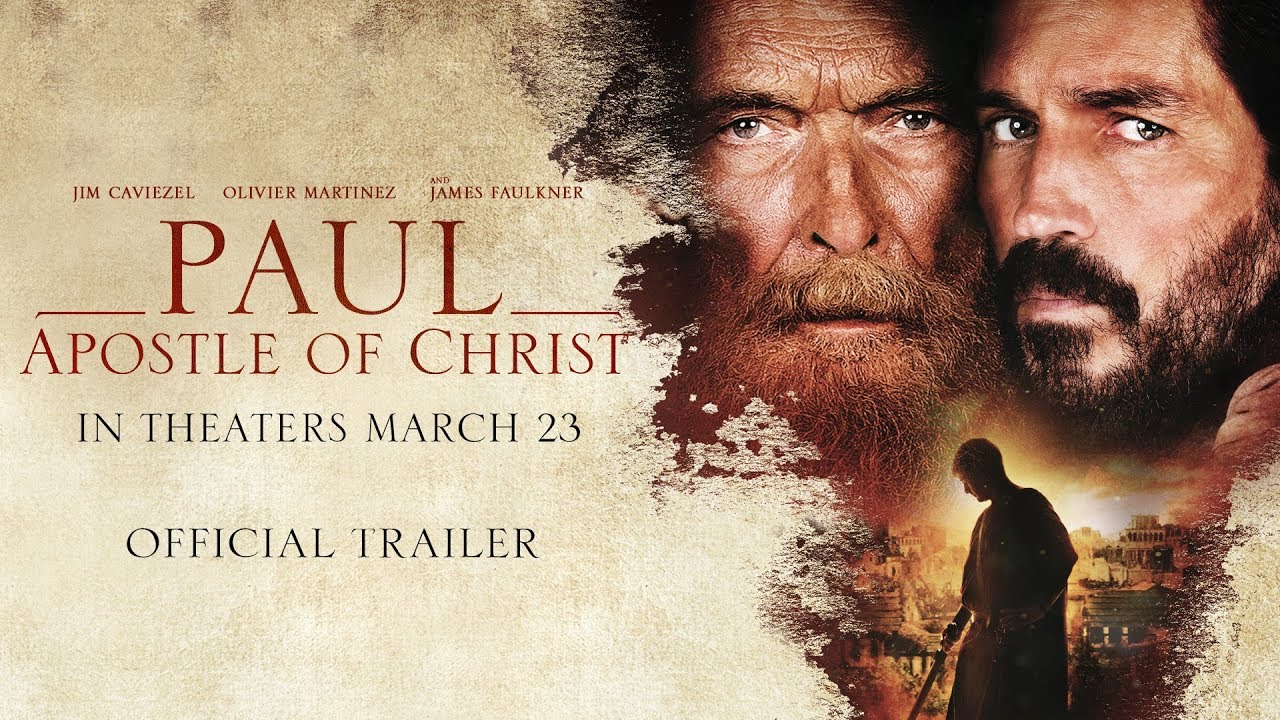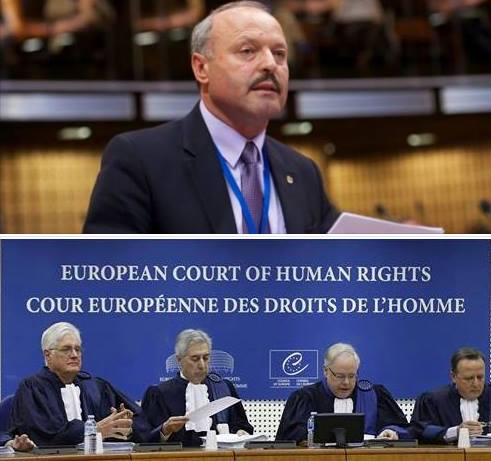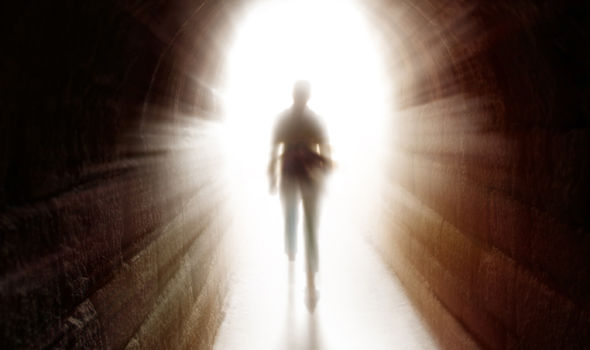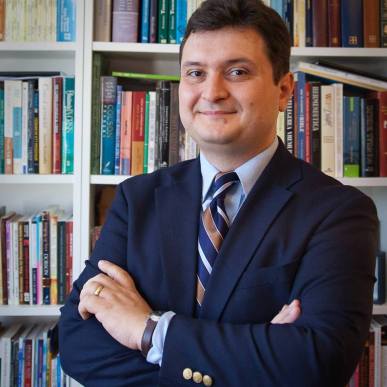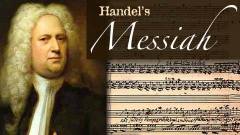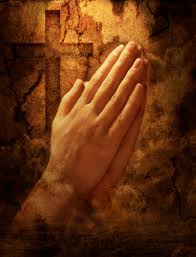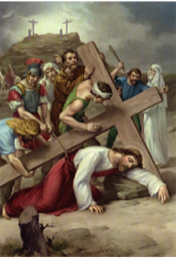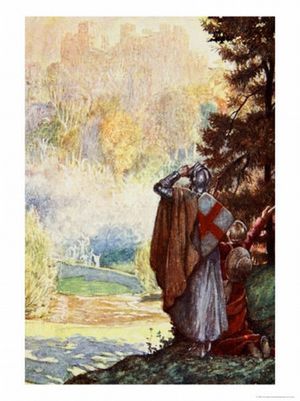 Photo credit Wikipedia
Photo credit Wikipedia
1. The Decree of Augustus Caesar and the Birth of Christ
(Luke 2:1-7)
In those days a decree went out from Caesar Augustus that all the world should beregistered. 2 This was the first registration when Quirinius was governor of Syria. 3 And all went to be registered, each to his own town. 4 And Joseph also went up from Galilee, from the town of Nazareth, to Judea, to the city of David, which is called Bethlehem,because he was of the house and lineage of David, 5 to be registered with Mary, his betrothed, who was with child. 6 And while they were there, the time came for her to give birth. 7 And she gave birth to her firstborn son and wrapped him in swaddling cloths and laid him in a manger, because there was no place for them in the inn.
2. The First Visitors – Shepherds (Luke 2:8-20)
 8 And in the same region there were shepherds out in the field, keeping watch over their flock by night. 9 And an angel of the Lord appeared to them, and the glory of the Lord shone around them, and they were filled with great fear. 10 And the angel said to them, “Fear not, for behold, I bring you good news of great joy that will be for all the people.11 For unto you is born this day in the city of David a Savior, who is Christ the Lord.12 And this will be a sign for you: you will find a baby wrapped in swaddling cloths and lying in a manger.” 13 And suddenly there was with the angel a multitude of the heavenly host praising God and saying,
8 And in the same region there were shepherds out in the field, keeping watch over their flock by night. 9 And an angel of the Lord appeared to them, and the glory of the Lord shone around them, and they were filled with great fear. 10 And the angel said to them, “Fear not, for behold, I bring you good news of great joy that will be for all the people.11 For unto you is born this day in the city of David a Savior, who is Christ the Lord.12 And this will be a sign for you: you will find a baby wrapped in swaddling cloths and lying in a manger.” 13 And suddenly there was with the angel a multitude of the heavenly host praising God and saying,
14 “Glory to God in the highest,
and on earth peace among those with whom he is pleased!”
15 When the angels went away from them into heaven, the shepherds said to one another, “Let us go over to Bethlehem and see this thing that has happened, which the Lord has made known to us.” 16 And they went with haste and found Mary and Joseph, and the baby lying in a manger. 17 And when they saw it, they made known the saying that had been told them concerning this child. 18 And all who heard it wondered at what the shepherds told them. 19 But Mary treasured up all these things, pondering them in her heart. 20 And the shepherds returned, glorifying and praising God for all they had heard and seen, as it had been told them. (Photo credit ruthiedean.com)
3. The Second Visitors – Magi (Mat 2:1-12)
 2 Now after Jesus was born in Bethlehem of Judea in the days of Herod the king, behold, wise men from the east came to Jerusalem, 2 saying, “Where is he who has been bornking of the Jews? For we saw his star when it roseand have come to worship him.”3 When Herod the king heard this, he was troubled, and all Jerusalem with him; 4 and assembling all the chief priests and scribes of the people, he inquired of them where the Christ was to be born. 5 They told him, “In Bethlehem of Judea, for so it is written by the prophet:
2 Now after Jesus was born in Bethlehem of Judea in the days of Herod the king, behold, wise men from the east came to Jerusalem, 2 saying, “Where is he who has been bornking of the Jews? For we saw his star when it roseand have come to worship him.”3 When Herod the king heard this, he was troubled, and all Jerusalem with him; 4 and assembling all the chief priests and scribes of the people, he inquired of them where the Christ was to be born. 5 They told him, “In Bethlehem of Judea, for so it is written by the prophet:
6 “‘And you, O Bethlehem, in the land of Judah,
are by no means least among the rulers of Judah;
for from you shall come a ruler
who will shepherd my people Israel.’”
7 Then Herod summoned the wise men secretly and ascertained from them what time the star had appeared. 8 And he sent them to Bethlehem, saying, “Go and search diligently for the child, and when you have found him, bring me word, that I too may come and worship him.” 9 After listening to the king, they went on their way. And behold, the star that they had seen when it rose went before them until it came to rest over the place where the child was. 10 When they saw the star, they rejoiced exceedingly with great joy. 11 And going into the house they saw the child with Mary his mother, and they fell down and worshiped him. Then, opening their treasures, they offered him gifts, gold and frankincense and myrrh. 12 And being warned in a dream not to return to Herod, they departed to their own country by another way. (Photo credit www.asiantribune.com)
Bethlehem: City Location
Modern Bethlehem is an agricultural market and trade center closely linked to nearby Jerusalem. It lies at a distance of 10 kms (6 miles) to the south of the Old City of Jerusalem. It is situated on a mountainous site, 777 meters (2600 feet) above the level of the Mediterranean Sea and overlooks its surroundings. Its surface resembles the shape of a semi circle. From the west, the town of Bethlehem is bounded by the town of Beit Jala and from the east by the town of Beit Sahour. From the north it is bordered by Jerusalem and the village of Sur Bahir and from the south by Solomon’s Pools and the villages of al-Khader and Artas. Forty thousand people live in the administrative limits of the municipality of Bethlehem and five thousand people in the old center of the town. As a symbol of the increased intermingling of the region’s people, beside Arabic, the native language, English is widely spoken. French, German and Spanish are spoken too. (Source)
 The city of Bethlehem (or House of Bread) lies within the territory assigned to the tribe of Judah. It lies in the midst of what was a fertile country, about six miles south by west from Jerusalem. The ancient city was beautifully situated on a commanding ridge, 2700 feet above the level of the sea. The hills around it were terraced, and clothed with vines, fig trees, and almonds, and the surrounding valleys yielded luxuriant harvests of grain. Jacob buried Rachel near its gate, and it was the home of Ruth and the birthplace of David, and ” David’s greater son ” the Lord Jesus Christ. Its population was small in the days of the Saviour, but at present is about 3000, nearly all the inhabitants being Christians. It is said to be one of the cleanest and neatest towns in Israel. St. Jerome lived there for more than thirty years, and there made his famous translation of the Bible into the Latin language. – Ancient Geography (PHOTO credit Photobucket.com)
The city of Bethlehem (or House of Bread) lies within the territory assigned to the tribe of Judah. It lies in the midst of what was a fertile country, about six miles south by west from Jerusalem. The ancient city was beautifully situated on a commanding ridge, 2700 feet above the level of the sea. The hills around it were terraced, and clothed with vines, fig trees, and almonds, and the surrounding valleys yielded luxuriant harvests of grain. Jacob buried Rachel near its gate, and it was the home of Ruth and the birthplace of David, and ” David’s greater son ” the Lord Jesus Christ. Its population was small in the days of the Saviour, but at present is about 3000, nearly all the inhabitants being Christians. It is said to be one of the cleanest and neatest towns in Israel. St. Jerome lived there for more than thirty years, and there made his famous translation of the Bible into the Latin language. – Ancient Geography (PHOTO credit Photobucket.com)
Bethlehem in Easton’s Bible Dictionary house of bread. (1.) A city in the „hill country” of Judah. It was originally called Ephrath (Gen. 35:16, 19; 48:7; Ruth 4:11). It was also called Beth-lehem Ephratah (Micah 5:2), Beth-lehem-judah (1 Sam. 17:12), and „the city of David” (Luke 2:4). It is first noticed in Scripture as the place where Rachel died and was buried „by the wayside,” directly to the north of the city (Gen. 48:7). The valley to the east was the scene of the story of Ruth the Moabitess. There are the fields in which she gleaned, and the path by which she and Naomi returned to the town. Here was David’s birth-place, and here also, in after years, he was anointed as king by Samuel (1 Sam. 16:4-13); and it was from the well of Bethlehem that three of his heroes brought water for him at the risk of their lives when he was in the cave of Adullam (2 Sam. 23:13-17). But it was distinguished above every other city as the birth-place of „Him whose goings forth have been of old” (Matt. 2:6; comp. Micah 5:2). Afterwards Herod, „when he saw that he was mocked of the wise men,” sent and slew „all the children that were in Bethlehem, and in all the coasts thereof, from two years old and under” (Matt. 2:16, 18; Jer. 31:15).
Bethlehem bears the modern name of Beit-Lahm, i.e., „house of flesh.” It is about 5 miles south of Jerusalem, standing at an elevation of about 2,550 feet above the sea, thus 100 feet higher than Jerusalem. There is a church still existing, built by Constantine the Great (A.D. 330), called the „Church of the Nativity,” over a grotto or cave called the „holy crypt,” and said to be the „stable” in which Jesus was born. This is perhaps the oldest existing Christian church in the world. Close to it is another grotto, where Jerome the Latin father is said to have spent thirty years of his life in translating the Scriptures into Latin. (See VERSION ¯T0003768.) (2.) A city of Zebulun, mentioned only in Josh. 19:15. Now Beit-Lahm, a ruined village about 6 miles west- north-west of Nazareth.
http://www.bible-history.com/eastons/B/Bethlehem/
 Photo credit http://news.bbc.co.uk
Photo credit http://news.bbc.co.uk
Bethlehem in the Bible Encyclopedia – ISBE beth’-le-hem (bethlechem; Baithleem, or Bethleem, „house of David,” or possibly „the house of Lakhmu,” an Assyrian deity): I. Bethlehem Judah: Bethlehem Judah, or EPHRATH or EPHRATHAH (which see) is now Beit Lahm (Arabic = „house of meat”), a town of upward of 10,000 inhabitants, 5 miles South of Jerusalem and 2,350 ft. above sea level. It occupies an outstanding position upon a spur running East from the watershed with deep valleys to the Northeast and South It is just off the main road to Hebron and the south, but upon the highroad to Tekoa and En- gedi. The position is one of natural strength; it was occupied by a garrison of the Philistines in the days of David (2 Sam 23:14; 1 Ch 11:16) and was fortified by Rehoboam (2 Ch 11:6).
The surrounding country is fertile, cornfields, fig and olive yards and vineyards abound. Bethlehem is not naturally well supplied with water, the nearest spring is 800 yds. to the Southeast, but for many centuries the „low level aqueduct” from „Solomon’s Pools” in the ArTas valley, which has here been tunneled through the hill, has been tapped by the inhabitants; there are also many rock-cut cisterns. 1. Early History: In 1 Ch 2:51 Salma, the son of Caleb, is described as the „father of Bethlehem.” In Gen 35:19; 48:7 it is recorded that Rachel „was buried in the way to Ephrath (the same is Beth-lehem).” Tradition points out the site of Rachel’s tomb near where the road to Bethlehem leaves the main road. The Levites of the events of Jdg 17; 19 were Bethlehemites. In the list of the towns of Judah the name Bethlehem occurs, in the Septuagint version only in Josh 15:57. 2.
David the Bethlehemite: Ruth, famous chiefly as the ancestress of David, and of the Messiah, settled in Bethlehem with her second husband Boaz, and it is noticeable that from her new home she could view the mountains of Moab, her native land. David himself „was the son of that Ephrathite of Bethlehem-judah, whose name was Jesse” (1 Sam 17:12). To Bethlehem came Samuel to anoint a successor to unworthy Saul (1 Sam 16:4): „David went to and fro from Saul to feed his father’s sheep at Bethlehem” (1 Sam 17:15). David’s „three mighty men” „brake through the host of the Philistines, and drew water out of the well of Beth-lehem, that was by the gate, and took it, and brought it to David” (2 Sam 23:14,16). Tradition still points out the well. From this town came those famous „sons of Zeruiah,” David’s nephews, whose loyalty and whose ruthless cruelty became at once a protection and a menace to their royal relative: in 2 Sam 2:32 it is mentioned that one of them, Asahel, was buried „in the sepulchre of his father, which was in Bethlehem.” 3. Later Bible History: After the time of David, Bethlehem would appear to have sunk into insignificance. But its future fame is pointed at by Micah (5:2): „But thou, Beth-lehem Ephrathah, which art little to be among the thousands of Judah, out of thee shall one come forth … http://www.bible-history.com/isbe/B/BETHLEHEM/
 Photo credit scripture-for-today.blogspot.com
Photo credit scripture-for-today.blogspot.com
1 Chronicles 11:18 Then the three mighty men broke through the camp of the Philistines and drew water out of the well of Bethlehem that was by the gate and took it and brought it to David. But David would not drink it. He poured it out to the Lord.
1 Chronicles 2:51 Salma the father of Bethlehem, Hareph the father of Bethgader.
1 Chronicles 4:4 and Penuel fathered Gedor, and Ezer fathered Hushah. These were the sons of Hur, the firstborn of Ephrathah, the father of Bethlehem.
Luke 2:15 When the angels went away from them into heaven, the shepherds said to one another, “Let us go over to Bethlehem and see this thing that has happened, which the Lord has made known to us.”
Luke 2:4 And Joseph also went up from Galilee, from the town of Nazareth, to Judea, to the city of David, which is called Bethlehem, because he was of the house and lineage of David,
Matthew 2:16 Then Herod, when he saw that he had been tricked by the wise men, became furious, and he sent and killed all the male children in Bethlehem and in all that region who were two years old or under, according to the time that he had ascertained from the wise men.
Matthew 2:6 “‘And you, O Bethlehem, in the land of Judah, are by no means least among the rulers of Judah; for from you shall come a ruler who will shepherd my people Israel.’”
Micah 5:2 But you, O Bethlehem Ephrathah, who are too little to be among the clans of Judah, from you shall come forth for me one who is to be ruler in Israel, whose coming forth is from of old, from ancient days.
Ruth 1:22 So Naomi returned, and Ruth the Moabite her daughter-in-law with her, who returned from the country of Moab. And they came to Bethlehem at the beginning of barley harvest.
Ruth 4:11 Then all the people who were at the gate and the elders said, “We are witnesses. May the Lord make the woman, who is coming into your house, like Rachel and Leah, who together built up the house of Israel. May you act worthily in Ephrathah and be renowned in Bethlehem.
~~~~~~~~~~
Bethlehem (Ephrath) (in Judah): Belt Lahm. associated with Rachel, Gen. 35. 19 (cf. Matt. 2. 18); in Judah, Judg. 17.7; home of Ruth, Ruth 1. 1 &c.; of David, 1 Sam. 17. 2; 2. Sam. 23. 15; Mic. 5. 2; Ezr. 2. 21; Neh. 7. 26; birth-place of Jesus, Matt. 2. lff.; Luke 2. 4 (cf. John 7. 42)
- Genesis 35:19 – So Rachel died, and she was buried on the way to Ephrath (that is, Bethlehem),
- Matthew 2:18 – “A voice was heard in Ramah, weeping and loud lamentation, Rachel weeping for her children; she refused to be comforted, because they are no more.”
- Judges 17:7 – Now there was a young man of Bethlehem in Judah, of the family of Judah, who was a Levite, and he sojourned there.
- Ruth 1:1 – In the days when the judges ruled there was a famine in the land, and a man ofBethlehem in Judah went to sojourn in the country of Moab, he and his wife and his two sons.
- 1 Samuel 17:2 – And Saul and the men of Israel were gathered, and encamped in the Valley of Elah, and drew up in line of battle against the Philistines.
- 2 Samuel 23:15 – And David said longingly, “Oh, that someone would give me water to drink from the well of Bethlehem that is by the gate!”
- Micah 5:2 – But you, O Bethlehem Ephrathah,
who are too little to be among the clans of Judah,
from you shall come forth for me
one who is to be ruler in Israel,
whose coming forth is from of old,
from ancient days.
- Ezra 2:21 – The sons of Bethlehem, 123.
- Nehemiah 7:26 – The men of Bethlehem and Netophah, 188.
- Matthew 2:1 – Now after Jesus was born in Bethlehem of Judea in the days of Herod the king, behold, wise men from the east came to Jerusalem.
- Luke 2:4 – And Joseph also went up from Galilee, from the town of Nazareth, to Judea, to the city of David, which is called Bethlehem, because he was of the house and lineage of David,
- John 7:42 – Has not the Scripture said that the Christ comes from the offspring of David, and comes from Bethlehem, the village where David was?”
SOURCE: http://www.bible-history.com/

Photo credit www.homeofourfathers.com
History of Bethlehem
Three thousand years before the birth of Christ, Bethlehem was already known as a Canaanite settlement. Canaanite tribes who settled in Palestine, built small cities surrounded by walls for protection against the attacks of raiders. One of these cities was Beit Lahama known today as Bethlehem. So, the word Bethlehem is derived from Lahmo the Chaldean god of fertility, which was adopted by the Canaanites as Lahama. In accordance with the Canaanite practice of building temples to their gods, they built a temple for Lahama on the present mount of the Nativity which overlooks the fertile valleys of the region. Walls, ramparts and other structures in different sites in Bethlehem clearly establish its Canaanite origin 3000 years before the birth of Jesus.
Bethlehem was mentioned around 1350 BC in the Tell al-Amarna letters, from the Egyptian governor of Palestine to the Pharaoh Amenhotep III. It was depicted as an important staging and rest stop for travelers from Syria and Palestine going to Egypt. The letters also signify that it was a border city of mid-Palestine and an outpost looking out towards the desert. The Philistines had a garrison stationed in Bethlehem because it was a strong strategic point. They entered the land of the Canaanites, mingled with its people and settled in the southern coasts between Jaffa and Gaza. The Philistines had achieved military supremacy over the greater part of the country around 1200 BC, and called it Palestine.
The narrative of the Old Testament mentions Bethlehem in the first book of the Bible when Jacob, son of Abraham, and his family were journeying to the city of Hebron passing by Bethlehem (Ephrata) (Genesis 35: 16-19). There, his wife Rachel died giving birth to Benjamin, and he buried her by the side of the Bethlehem Road where her tomb has been a shrine to this day: „And Rachel died, and was buried in the way to Ephrath, which is Bethlehem.” In that time, Bethlehem was a small, walled town erected on a hill in the northern part of the present town of Bethlehem. The name of Bethlehem (Ephrata) „the fruitful” itself suggests a pastoral and agricultural life. The tale of Ruth, the Moabite, and Boaz suggests an atmosphere of idyllic rusticity that is still obvious today (Ruth 2-4). Ruth’s grandson was King David of whose lineage Christ was born.
A decree of Caesar Augustus, ordering the taking of a census in all the provinces of the Roman Empire, brought Mary and Joseph to Bethlehem, thus fulfilling the prophecy of Micah, spoken 750 years before: „And thou, Bethlehem Ephrata, art a little one among the thousands of Juda: out of thee shall he come forth unto me that is to be the ruler of his people”(Mikha 5:2). When Jesus was born in Bethlehem, Herod the Great was a vassal of Rome and in 6 AD Palestine was incorporated in the imperial province of Syria. Emperor Hadrian in 135 AD profaned the sanctity of the Grotto of the Nativity and turned it into a pagan shrine.
From Hadrian’s time until the reign of Constantine, the population worshipped Adonis in the cave where the infant Jesus was born. Palestine, consequently, was officially pagan as was the whole Roman empire until 313 when Constantine proclaimed Christianity as the religion of the state. In the year 325 the Bishop of Jerusalem, St. Maccarius, took the opportunity of acquainting the Emperor Constantine with the neglected condition of the Holy Places in his diocese. Thus, the Emperor ordered the construction, at public expense, of monumental churches to commemorate the three principal events of Jesus’ life: Nativity, Crucifixion and Resurrection. One of these was a church enshrining the scene of the Nativity. Christian traditions were so clear and deeply rooted that there was no problem in locating the correct place. Among the trees, not far from the village, was a cave which the local people and their parents had known for generations to be the birthplace of Jesus Christ. The cave was made the center of a scheme for the church and work began the following year (326 AD)
Toward the end of the 4th century, Bethlehem became a very important center of monastic life. In 384 AD St. Jerome arrived from Rome with a group of pilgrims. He came to Bethlehem to continue his work in the atmosphere of monastic life. He devoted himself to the tremendous task with which Pope St. Damasus had entrusted him, namely to review all old Latin translations of the Bible and produce a new version, the Vulgate, based on original Hebrew and Greek texts. Two Roman ladies of noble origin, St. Paula and her daughter Eustochium moved to Bethlehem in 386 to lead an ascetic life along with St. Jerome. They founded the earliest monastic community in Bethlehem which has lasted, with some interruption, to this day. Paula used her riches to build a hospice for pilgrims and two monasteries, one for St. Jerome and his followers, and the other for herself and the nuns.
When the Roman empire was divided in 395 into two empires, eastern and western, Palestine was attached to Byzantium, the eastern part. In the following years the life of the Latin-speaking communities of Bethlehem faded from view, eclipsed by the growth and more spectacular austerities of an eastern monasticism. As a result, the town of Bethlehem prospered and its population increased with the spread of churches, monasteries, and convents in Bethlehem itself, and the surrounding areas. In AD 527 Justinian became Emperor in Constantinople. Under his reign Palestine witnessed a time of prosperity and expansion for its churches and for monasticism. Afterwards, in 529, the Samaritans rebelled against the Byzantine state and overran the country, plundering and destroying as they went. Churches and monasteries, towns and villages were all pillaged or gutted by fire. The walls of Bethlehem and its main church were destroyed. The revolt was soon quelled. At the same time the church was rebuilt in a grand style. The town wall and the defenses of the monasteries were repaired.
A few years later (614) the country was invaded by the Persians. According to an oral tradition, they did not cause any damage to the Church of the Nativity because they saw the pictures of the three Magi dressed as Persians, carrying gifts to Christ at his birth. Outside and above the roof of the narthex, the gable end overlooking the atrium was decorated with a mosaic scene of the birth of Christ with his mother holding the Child to her breast. In 637, soon after his entry into Jerusalem, the Muslim Caliph ‘Umar ibn al-Khattab visited Bethlehem. The relations between ‘Umar and the ecclesiastical authorities were friendly and a written agreement was granted to the Patriarch Sofronious. The tolerant policy was maintained by Umar’s successors till 1009. In that year a fanatic Caliph, al-Hakim, the one who had destroyed the Holy Sepulcher, declared a real persecution against Christians. However, Bethlehem was once more spared because al-Hakim wished to continue receiving the tribute Christians had been paying since Umar’s day.
The conquest of Palestine by the Crusaders in the year 1099 began a new chapter in the history of Bethlehem. Within a short time the Franks took over from the local clergy and installed a community of Augustinian canons under a prior who conducted services in the Latin language. The Crusaders reconstructed the town and made it a fortified outpost. They remained for about two centuries during which the town of Bethlehem prospered. Some of them intermarried with the local people and settled down. The 12th century opened Bethlehem to European social and ecclesiastical influences to an unprecedented extent. From every country, pilgrims could now visit the Holy Places bringing with them offerings to the church and prosperity to the merchants whose shops were built in front of it. In 1100, the Crusader King Baldwin succeeded in having Pope Pascal II establish a bishopric in Bethlehem.
In 1187, Saladin the Ayyubite captured Bethlehem. Although the Church of the Nativity was unharmed, the relations with the West were abruptly cut off, and the Latin Bishop and Canons were forced to leave. The life of the local people was seriously affected by the expulsion of the Latin community and the temporary interruption of the stream of western pilgrims on which the Bethlehemites primarily depended. However, because of two treaties, one signed by emperor Frederick II and Malek el-Kamel, sultan of Egypt, and the second by the king of Navarre and the Sultan of Damascus, Bethlehem was in Christian hands from 1229 to 1244. The Canons of St. Augustine could return to their convent and the Basilica was once more opened to the Christian world.
In 1250, the Ayyubid Dynasty was replaced in Egypt by Circassian Mamlukes, and the accession of the fanatical Sultan Rukn ed-Din Beibars brought an end to the tradition of tolerance that helped safeguard the Holy places. In 1263, Beibars ordered the dismantling of the towers and walls of Bethlehem. The church itself was not damaged, which gave rise to a legend that a serpent bit the marbles and cracked them, so that the Sultan could not take them to Cairo, as he wished. However, the Christians were banished from Bethlehem.
In the following century, western influences were reinforced; monks from the order of the Franciscan Friars Minor were established in Bethlehem in the old Augustinian priory, where they still reside. The Franciscan Fathers had acquired possession of the grotto in 1347 and also, the right to administer the Basilica and to care for its maintenance. The Franciscan Custos, Giovanni, obtained from the Sultan Qaita Bey consent to renovate the roof of the Church of the Nativity. A few years later European influences at Bethlehem were set back by the expulsion of the Catholic Latin clergy for the second time.
With the Turkish occupation in 1517, the period of conflict between the Franciscans and the Greeks for the possession of the Sanctuaries began. Consequently, the Basilica passed from the Franciscans to the Greeks according to the favor enjoyed at the Sublime Porte (Ottoman Caliph) by the nation which supported the communities (Catholics or Orthodox). Under the Turkish regime the question of ownership and rights in the Holy Places took on an increasingly political and even international dimension. The first question in the dispute between France and Russia was concerned with the possession of the key to the main doors of the Basilica. The second was concerned with the mysterious removal, one night in the year 1847, of a silver star bearing a Latin inscription, which was put into a slab of marble beneath the altar of the Nativity. However, between the 17th and 18th centuries Bethlehem was on the verge of modern times. Long and continuous contact by the local people with travelers from Western Christendom had familiarized them with the manners and tastes of Western countries, and improved their economic condition.
Palestine was under Egyptian rule for ten years beginning in 1831. However, during this period, robbery and violence were too common, and the murder of a favorite of Ibrahim Pasha in 1834, resulted in the destruction of the Moslem quarter of the town and the disarming of the whole population. By 1841 Bethlehem was again under Turkish rule. The result was unemployment, oppression, compulsory military service and heavy taxes imposed on the inhabitants. This oppressive situation forced the people of Bethlehem to emigrate abroad, especially to the Americas, to earn a living and improve their life-style. By the end of the 19th century, several European missionaries came to Bethlehem and built schools.
The Turkish rule ended in 1917, and Palestine was placed under the British Mandate. At that time, the inhabitants of Bethlehem numbered about 8000. When the British withdrew from Palestine in 1948 the population of Bethlehem was 11,696. Wars between Arabs and Jews continued and the latter occupied most of Palestine and declared their state ‘Israel’. The town of Bethlehem remained unoccupied and towards the end of 1948, the union of the eastern part of Palestine and Trans-Jordan was declared under the name of the Hashemite Kingdom of Jordan. A second war between the Arabs and Israelis broke out in 1967, and the latter occupied the remainder of Palestine including Bethlehem. Bethlehem remained under the Israeli occupation until December 22, 1995 when the Palestinian Authority took over in compliance with the Oslo Accord of 1993.
In September 1993 Israel and the PLO signed the Oslo Accord. Among its provisions, the accord called for a five-year interim period of Palestinian Autonomy in the West Bank and Gaza at the end of which the final status of the occupied territories will be decided. However, the implementation of the accord met setbacks resulting from the intransigence of the Israeli extremists.
 Messiah (HWV 56)[1] is an English-language oratorio composed in 1741 by George Frideric Handel, with a scriptural text compiled by Charles Jennens from the King James Bible and the Book of Common Prayer. It was first performed in Dublin on 13 April 1742, and received its London premiere nearly a year later. After an initially modest public reception the oratorio gained in popularity, eventually becoming one of the best-known and most frequently performed choral works in Western music.[n 1]
Messiah (HWV 56)[1] is an English-language oratorio composed in 1741 by George Frideric Handel, with a scriptural text compiled by Charles Jennens from the King James Bible and the Book of Common Prayer. It was first performed in Dublin on 13 April 1742, and received its London premiere nearly a year later. After an initially modest public reception the oratorio gained in popularity, eventually becoming one of the best-known and most frequently performed choral works in Western music.[n 1]




 Photo credit
Photo credit  Photo credit
Photo credit 
 Photo credit
Photo credit  8 And in the same region there were shepherds out in the field, keeping watch over their flock by night. 9 And an angel of the Lord appeared to them, and the glory of the Lord shone around them, and they were filled with great fear. 10 And the angel said to them, “Fear not, for behold, I bring you good news of great joy that will be for all the people.11 For unto you is born this day in the city of David a Savior, who is Christ the Lord.12 And this will be a sign for you: you will find a baby wrapped in swaddling cloths and lying in a manger.” 13 And suddenly there was with the angel a multitude of the heavenly host praising God and saying,
8 And in the same region there were shepherds out in the field, keeping watch over their flock by night. 9 And an angel of the Lord appeared to them, and the glory of the Lord shone around them, and they were filled with great fear. 10 And the angel said to them, “Fear not, for behold, I bring you good news of great joy that will be for all the people.11 For unto you is born this day in the city of David a Savior, who is Christ the Lord.12 And this will be a sign for you: you will find a baby wrapped in swaddling cloths and lying in a manger.” 13 And suddenly there was with the angel a multitude of the heavenly host praising God and saying, 2 Now after Jesus was born in Bethlehem of Judea in the days of Herod the king, behold, wise men from the east came to Jerusalem, 2 saying, “Where is he who has been bornking of the Jews? For we saw his star when it roseand have come to worship him.”3 When Herod the king heard this, he was troubled, and all Jerusalem with him; 4 and assembling all the chief priests and scribes of the people, he inquired of them where the Christ was to be born. 5 They told him, “In Bethlehem of Judea, for so it is written by the prophet:
2 Now after Jesus was born in Bethlehem of Judea in the days of Herod the king, behold, wise men from the east came to Jerusalem, 2 saying, “Where is he who has been bornking of the Jews? For we saw his star when it roseand have come to worship him.”3 When Herod the king heard this, he was troubled, and all Jerusalem with him; 4 and assembling all the chief priests and scribes of the people, he inquired of them where the Christ was to be born. 5 They told him, “In Bethlehem of Judea, for so it is written by the prophet: The city of Bethlehem (or House of Bread) lies within the territory assigned to the tribe of Judah. It lies in the midst of what was a fertile country, about six miles south by west from Jerusalem. The ancient city was beautifully situated on a commanding ridge, 2700 feet above the level of the sea. The hills around it were terraced, and clothed with vines, fig trees, and almonds, and the surrounding valleys yielded luxuriant harvests of grain. Jacob buried Rachel near its gate, and it was the home of Ruth and the birthplace of David, and ” David’s greater son ” the Lord Jesus Christ. Its population was small in the days of the Saviour, but at present is about 3000, nearly all the inhabitants being Christians. It is said to be one of the cleanest and neatest towns in Israel. St. Jerome lived there for more than thirty years, and there made his famous translation of the Bible into the Latin language. – Ancient Geography (PHOTO credit
The city of Bethlehem (or House of Bread) lies within the territory assigned to the tribe of Judah. It lies in the midst of what was a fertile country, about six miles south by west from Jerusalem. The ancient city was beautifully situated on a commanding ridge, 2700 feet above the level of the sea. The hills around it were terraced, and clothed with vines, fig trees, and almonds, and the surrounding valleys yielded luxuriant harvests of grain. Jacob buried Rachel near its gate, and it was the home of Ruth and the birthplace of David, and ” David’s greater son ” the Lord Jesus Christ. Its population was small in the days of the Saviour, but at present is about 3000, nearly all the inhabitants being Christians. It is said to be one of the cleanest and neatest towns in Israel. St. Jerome lived there for more than thirty years, and there made his famous translation of the Bible into the Latin language. – Ancient Geography (PHOTO credit  Photo credit
Photo credit  Photo credit
Photo credit 






 Photo credit
Photo credit  This Jesus is clearly absolutely worthy of more than nominal adherence and church association. Church leaders, we must not reduce this Jesus to a poor, puny savior who is just begging for people to accept him into their hearts as if Jesus needed to be accepted by us. He doesn’t need your acceptance. He doesn’t need my acceptance. He doesn’t need any of our acceptance. He’s infinitely worthy of all glory in all the universe and He doesn’t need us at all. We need Him! We desperately need Him…Jesus is worthy of total abandonment and supreme adoration.” This is no game here. We’re talking about the Savior King of the universe and the Righteous Judge of the nations. God in the flesh, saying, „Follow Me”. (2nd Photo credit
This Jesus is clearly absolutely worthy of more than nominal adherence and church association. Church leaders, we must not reduce this Jesus to a poor, puny savior who is just begging for people to accept him into their hearts as if Jesus needed to be accepted by us. He doesn’t need your acceptance. He doesn’t need my acceptance. He doesn’t need any of our acceptance. He’s infinitely worthy of all glory in all the universe and He doesn’t need us at all. We need Him! We desperately need Him…Jesus is worthy of total abandonment and supreme adoration.” This is no game here. We’re talking about the Savior King of the universe and the Righteous Judge of the nations. God in the flesh, saying, „Follow Me”. (2nd Photo credit 

 For unto us a child is born, to us a son is given, and the government will be on his shoulders. And he will be called the Wonderful Counselor, the Mighty God, the Everlasting Father, the Prince of Peace.
For unto us a child is born, to us a son is given, and the government will be on his shoulders. And he will be called the Wonderful Counselor, the Mighty God, the Everlasting Father, the Prince of Peace. God, not willing that any should perish (II Peter 3:9), had promised a sign to identify this perfect righteous One when He appeared on the stage of human history. That sign is recorded in Isaiah 7:14; „Therefore, the Lord Himself will give you a sign (a miracle, a supernatural occurrence), a virgin shall conceive, and bear a son, and shall call his name Immanuel (meaning, God with us).”
God, not willing that any should perish (II Peter 3:9), had promised a sign to identify this perfect righteous One when He appeared on the stage of human history. That sign is recorded in Isaiah 7:14; „Therefore, the Lord Himself will give you a sign (a miracle, a supernatural occurrence), a virgin shall conceive, and bear a son, and shall call his name Immanuel (meaning, God with us).” „And the government shall be upon his shoulders” – This refers to inherent royalty. „The Government shall be upon his shoulders” is a quaint way of saying „HE IS GOING TO RULE.” Jesus Christ will rule when the world government rests upon His shoulders during His 1000 year reign. Again I want to remind you that within the framework of this one verse of Scripture the first and second comings of the Lord Jesus Christ are clearly outlined. „A child is born, and a son is given” occurred at His first coming more than nineteen hundred years ago. „And the government shall be upon his shoulders” awaits His second coming to the rebuilt Temple when He takes over the throne of David at Jerusalem.
„And the government shall be upon his shoulders” – This refers to inherent royalty. „The Government shall be upon his shoulders” is a quaint way of saying „HE IS GOING TO RULE.” Jesus Christ will rule when the world government rests upon His shoulders during His 1000 year reign. Again I want to remind you that within the framework of this one verse of Scripture the first and second comings of the Lord Jesus Christ are clearly outlined. „A child is born, and a son is given” occurred at His first coming more than nineteen hundred years ago. „And the government shall be upon his shoulders” awaits His second coming to the rebuilt Temple when He takes over the throne of David at Jerusalem. But when the government rests upon the shoulders of Jesus Christ, „Of the increase of his government and peace there will be no end. He will reign on David’s throne and over his kingdom, establishing and upholding it with justice and righteousness from that time on and forever….” (Isaiah 9:7). Jesus Christ is„The Everlasting Father.” Or better, „The Father of Eternity.” He will not die, and there will be no ebb and flow in His government, only continuity of perfect rule.
But when the government rests upon the shoulders of Jesus Christ, „Of the increase of his government and peace there will be no end. He will reign on David’s throne and over his kingdom, establishing and upholding it with justice and righteousness from that time on and forever….” (Isaiah 9:7). Jesus Christ is„The Everlasting Father.” Or better, „The Father of Eternity.” He will not die, and there will be no ebb and flow in His government, only continuity of perfect rule. I should add at this point that the world will achieve a false or pseudo peace just before the return of Jesus Christ. This false or pseudo peace will reach its culmination under the dictator of Rome known as the antichrist. Paul refers to this in I Thessalonians 5:3; „For when they shall say, ‘Peace and safety, then sudden destruction comes upon them….” Everything you see transpiring in the world today to bring about world peace, will bring about the greatest war the world has ever seen. The war of Armageddon.
I should add at this point that the world will achieve a false or pseudo peace just before the return of Jesus Christ. This false or pseudo peace will reach its culmination under the dictator of Rome known as the antichrist. Paul refers to this in I Thessalonians 5:3; „For when they shall say, ‘Peace and safety, then sudden destruction comes upon them….” Everything you see transpiring in the world today to bring about world peace, will bring about the greatest war the world has ever seen. The war of Armageddon.

